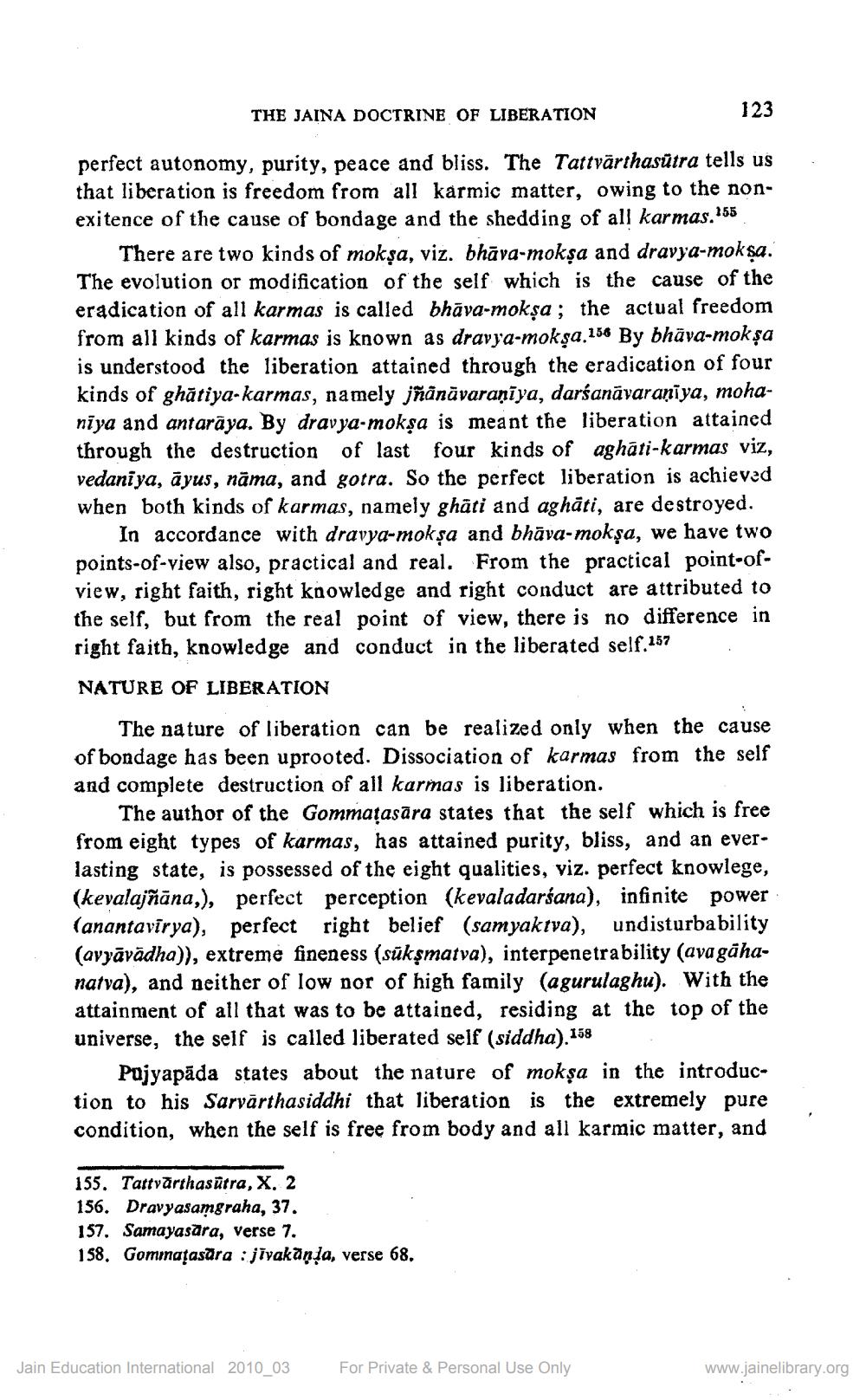________________
THE JAINA DOCTRINE OF LIBERATION
123
perfect autonomy, purity, peace and bliss. The Tattvārthasütra tells us that liberation is freedom from all karmic matter, owing to the nonexitence of the cause of bondage and the shedding of all karmas.155
There are two kinds of mokşa, viz. bhāva-mokşa and dravya-moksa. The evolution or modification of the self which is the cause of the eradication of all karmas is called bhāva-moksa; the actual freedom from all kinds of karmas is known as dravya-moksa 156 By bhāva-mokşa is understood the liberation attained through the eradication of four kinds of ghātiya-karmas, namely imånāvaranīya, darśanāvaraniya, niya and antarāya. By dravya-moksa is meant the liberation attained through the destruction of last four kinds of aghāti-karmas viz, vedaniya, āyus, nāma, and gotra. So the perfect liberation is achieved when both kinds of karmas, namely ghāti and aghāti, are destroyed.
In accordance with dravya-mokşa and bhāva-mokșa, we have two points-of-view also, practical and real. From the practical point-ofview, right faith, right knowledge and right conduct are attributed to the self, but from the real point of view, there is no difference in right faith, knowledge and conduct in the liberated self.157 NATURE OF LIBERATION
The nature of liberation can be realized only when the cause of bondage has been uprooted. Dissociation of karmas from the self and complete destruction of all karmas is liberation.
The author of the Gommațasāra states that the self which is free from eight types of karmas, has attained purity, bliss, and an everlasting state, is possessed of the eight qualities, viz. perfect knowlege, (kevalajñāna,), perfect perception (kevaladarśana), infinite power (anantavirya), perfect right belief (samyakrva), undisturbability (avyāvādha)), extreme fineness (sükşmatva), interpenetrability (ava gāhanatva), and neither of low nor of high family (agurulaghu). With the attainment of all that was to be attained, residing at the top of the universe, the self is called liberated self (siddha).158
Pujyapāda states about the nature of mokṣa in the introduction to his Sarvārthasiddhi that liberation is the extremely pure condition, when the self is free from body and all karmic matter, and
155. Tattvarthasūtra, X, 2 156. Dravyasamgraha, 37. 157. Samayasara, verse 7. 158. Gommatasära : jiyakanda, verse 68.
Jain Education International 2010_03
For Private & Personal Use Only
www.jainelibrary.org




